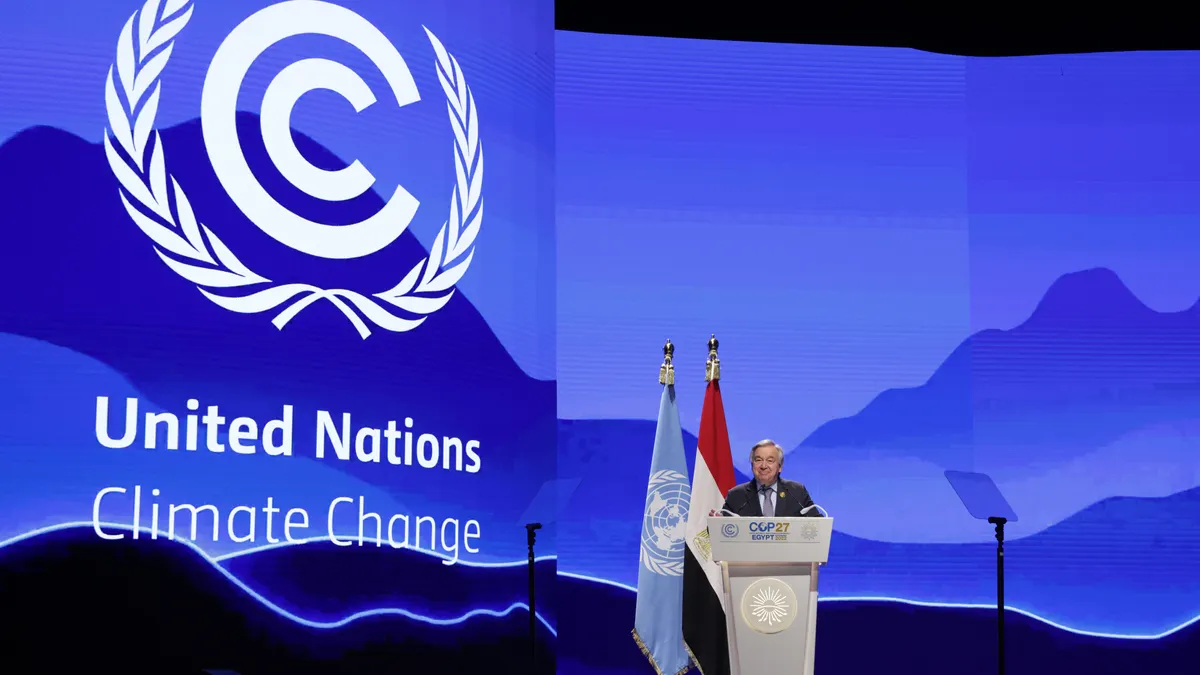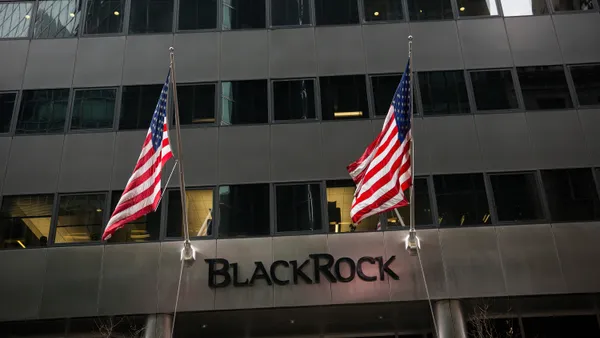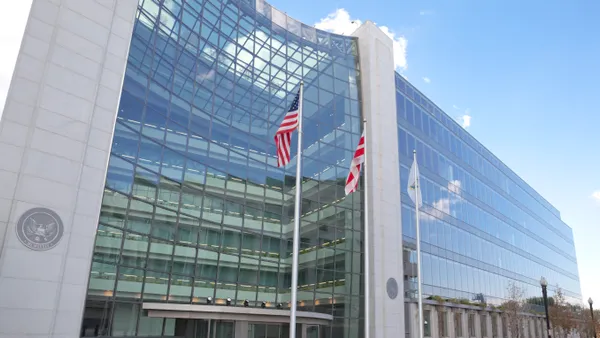Dive Brief:
- Members of the UN-backed Net-Zero Asset Owner Alliance invested $175 billion in climate solutions in 2023, up almost 38% from the $127 billion invested in 2022, according to the group’s latest progress report released Wednesday.
- The group’s 88 members collectively represent $9.5 trillion in assets under management and include the California Public Employees’ Retirement System — the nation’s largest pension fund — as well as the David Rockefeller Fund, Allianz SE and others. Of the collectives’ AUM, $555 billion or 6% were allocated toward climate-focused investments such as corporate bonds and real estate assets through last year, per the report.
- NZAOA said 81 asset owners have set intermediate targets to reach net-zero emissions by 2025, up from 69 members who committed to doing so last year. These decarbonization targets align with the Intergovernmental Panel on Climate Change’s scenarios for no or little overshoot of 1.5°C global temperature rise.
Dive Insight:
Though the alliance’s membership count increased to 88, up from 86 last year, Danish pension fund PKA withdrew from the alliance on Aug. 31, per the NZAOA website.
Of the 81 members who have set targets, nearly all (79) have also committed to setting sub-portfolio decarbonization targets which, on average, aim for a 26% reduction in emissions by 2025 for bonds, equities, real estate and infrastructure investments. These targets cover about $4.3 trillion, or 48% of the members’ total AUM, and are aligned with the Paris Agreement and the Intergovernmental Panel on Climate Change’s sixth assessment report which provides a pathway for achieving net-zero greenhouse gas emissions by 2050, according to NZAOA.
The report said the remainder of the AUM not covered by sub-portfolio targets reflect asset classes that are not in the scope of the group’s target-setting protocol — which outlines how members should set short-term goals to reduce emissions. Those include assets such as sovereign debt, or those that haven’t been phased into the protocol yet, such as private assets.
Despite an increase in sustainable investments over the past year, NZAOA members said the global pace of progress toward climate mitigation and portfolio decarbonization has been slow.
Wendy Walford, head of climate risk at financial services company Legal & General, said the “pace of transition in the real economy remains insufficient, with global emissions continuing to rise each year,” in an Oct. 30 release accompanying the report.
“As long-term investors, we see the difference between governments’ climate commitments and current policies as unsustainable, and a decisive shift in policy is required to align policy frameworks with the net-zero transition more widely,” Walford added.
The group, run by the UN Environment Programme Finance Initiative, released its annual progress report less than two weeks ahead of the COP29 climate change summit, which is set to take place from Nov. 11-22 in Baku, Azerbaijan.












